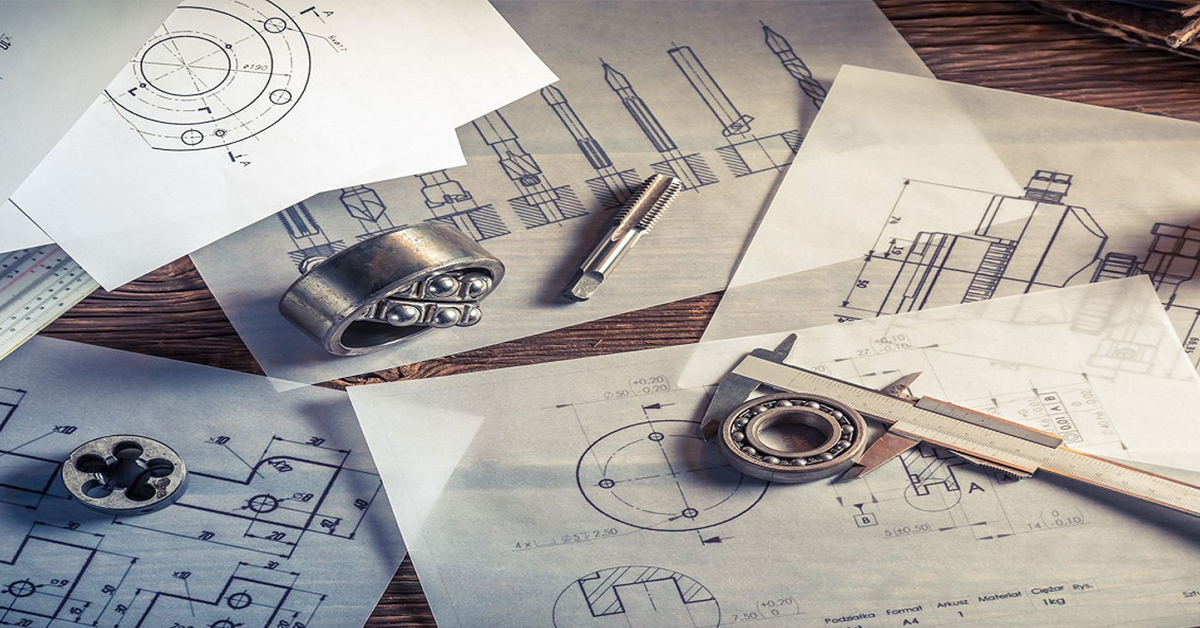Mechanical engineering is an ever-evolving field crucial to improving our quality of life. With the rapid advancement of technology in recent years, mechanical engineers have been at the forefront of developing innovative solutions to tackle global challenges. This blog will explore some of the recent trends in mechanical engineering that are revolutionising various industries. So, let's dive in and learn about the exciting future of this dynamic field!
What is Mechanical Engineering?
Mechanical engineering is a broad engineering discipline that applies principles of physics and materials science to analyse, design, manufacture, and maintain mechanical systems. Mechanical engineers work in various industry sectors, including automotive, aerospace, manufacturing, and energy. Some core responsibilities involve designing machine parts, testing product prototypes, improving manufacturing processes, implementing quality control measures, and ensuring equipment safety standards are met.
The Impact of Technology on Mechanical Engineering
Automated Manufacturing Technology
One of the most prominent trends in mechanical engineering is the adoption of automated manufacturing engineering technology like robotics, 3D printing, computer-aided manufacturing, etc. These technologies enable faster, more efficient, and more accurate manufacturing than traditional methods.
For example, industrial robots can precisely repeat processes 24/7 without fatigue. This improves product quality and reduces material waste. According to Mordor Intelligence (2023), the global industrial robotics market is expected to grow at a CAGR of 13.40% by 2028. As automation technology advances, its adoption across manufacturing industries will keep rising.
Advanced Materials and Nanotechnology
Cutting-edge materials developed through nanotechnology and other methods allow engineers to build stronger, safer, and more viable solutions. Materials like composites, alloys, ceramics, polymers, and graphene-based substances provide superior mechanical properties to conventional metals and allow new design possibilities. They enable lighter aircraft, more durable medical implants, compact electronics, and high-performance sporting goods. Nanotechnology also influences other fields like advanced coatings, water treatment, drug delivery, and energy storage, which mechanical engineers get involved with.
CAD Software
The widespread use of CAD (computer-aided design) software like AutoCAD, SolidWorks, CATIA, etc., has also transformed mechanical engineering design. CAD allows faster 3D modelling and simulation of products before physical prototyping.
It enables mechanical engineers to design, visualise, analyse, and modify complex geometries easily. Features like FEA (finite element analysis) help virtually test product performance and safety. CAD empowers engineers to design innovative products faster at lower costs.
According to the 3D CAD Sofware global market report (2023), the CAD software market is forecast to grow to around $14 billion by 2027. The software will boost engineering productivity and creativity as it becomes more advanced.
3d Printing Construction
3D printing machine also radically changes mechanical engineering by enabling rapid prototyping and bespoke manufacturing. It allows direct production of final parts from digital CAD models without tooling or machining. Engineers now use 3D printers to create custom jigs, fixtures, functional prototypes, and end-use parts on demand. This accelerates product development cycles and reduces costs. 3D printing facilitates mass customisation - unique designs can be produced without setup costs.
Robotics and Automation
Robots are playing an increasingly important role in industrial production through automation. They can now perform jobs more quickly, precisely and safely than humans. Robots are commonly used for tasks like welding car bodies, assembling electronic components, and packaging products on production lines.
Automation boosts productivity, efficiency, accuracy and compliance in industrial processes while reducing human error and fatigue. For example, automated guided vehicles (AGVs) are deployed in warehouses to transport materials without human intervention. Automation also enables remote monitoring and control of processes.
DMU Dubai’s Mechanical Engineering Degree
De Montfort University (DMU) Dubai offers a Bachelor’s degree in Mechanical Engineering, equipping students with the knowledge and skills required to excel in this evolving field. The curriculum is designed to provide theoretical learning and practical experience through lab work and projects.
The programme teaches core concepts related to thermodynamics, solid mechanics, heat transfer, aerodynamics and control, fracture mechanics, and more. Students also learn to use cutting-edge engineering tools and technologies, including CAD, 3D printing and FEA Analysis software.
The programme aims to nurture professionals who can apply mechanical engineering principles to build a sustainable future. The degree helps develop well-rounded mechanical engineers capable of working across different industries. With DMU Dubai’s Education 2030 vision, students can study one subject at a time instead of several at once.
Conclusion
From automated manufacturing and 3D printing to robotics and CAD software, mechanical engineering today is being transformed by exciting new technological trends. These innovations enable faster, leaner, and more agile design and production across industries. Mechanical engineers who leverage these trends will be better equipped to develop groundbreaking solutions that improve lives and sustainability globally. With our industry-relevant curriculum and future-focused vision, DMU Dubai provides the perfect launch pad for aspiring mechanical engineers to become pioneers in this new era of technology-driven possibilities.
Are you ready to embark on this exciting journey and become a driver of innovation in mechanical engineering? Apply now to join our programme and build your future in this dynamic field!
De Montfort University Dubai
Dubai International Academic City
Post Box: 294345
Dubai, UAE
About DMU
Useful Links
© Copyright DMU Dubai 2024

